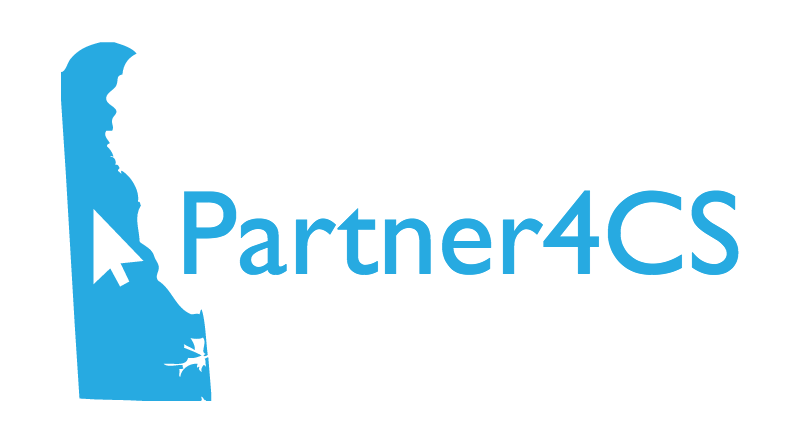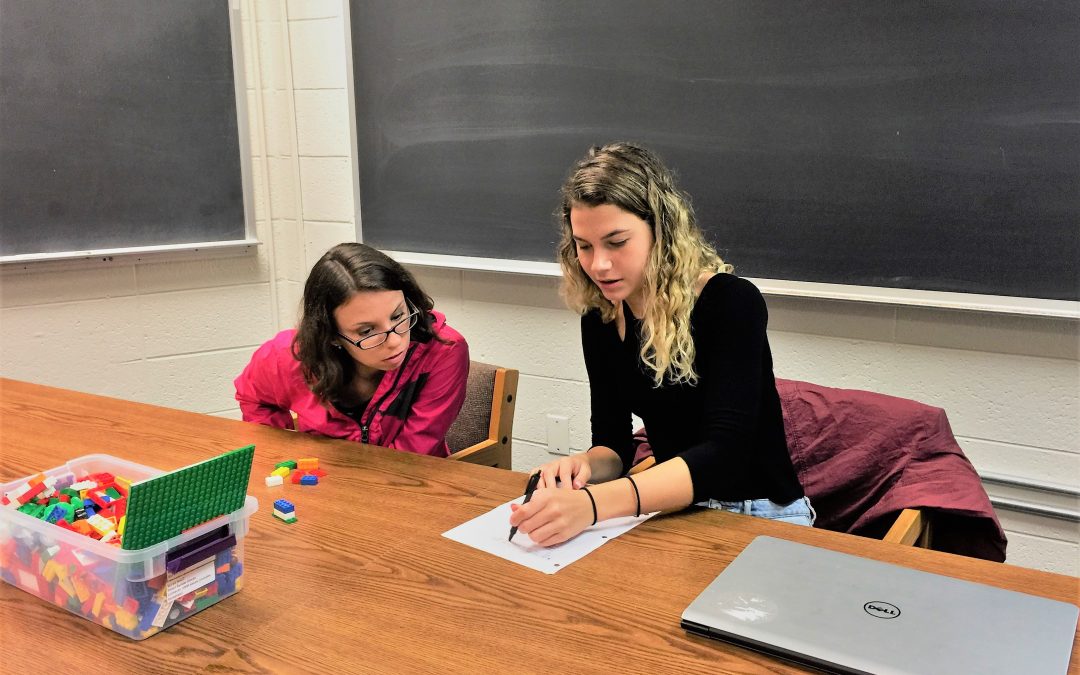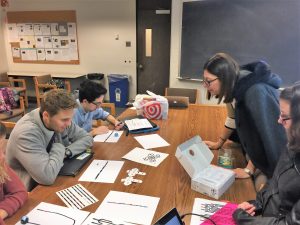The CISC 357 Field Experiences in Teaching Computing provides learning opportunities to CIS, STEM education and educational technology undergrads to collaborate with classroom teachers and after-school program coordinators to design and implement computational lessons. Undergraduate students who enroll in the CISC 357 course will be assigned to a variety of field placements (e.g., schools, libraries etc.) to work with real teachers and classroom students to accomplish their CS objectives. Although the undergrads’ primary learning takes place in the field, they are also required to meet once a week on UD campus to learn about teaching pedagogies and discuss with the course professors about their plannings and questions regarding on their field experiences.
In Fall 2017 semester, our CISC 357 undergraduate students assisted in four sites which are: 1) the Scratch Technology Program at the Newark Free Library; 2) the Technology Program (Elementary to Middle School Level) and the Additional Program (High School Level) at the Bear Library; 3) the Computer course at the East Side Charter School and 4) the BPA program at the George Kirk Middle School. In total, our undergraduate students contributed to promoting CS education to about 90 students in the Fall 2017 semester.
To better help our CISC 357 undergraduates grasp teaching pedagogies and apply effective teaching strategies to their field placements, Dr. Chrystall Mouza and Dr. James Atlas met with these students at the UD campus every week purposefully. In this 75-minute weekly meeting, Dr. Mouza and Dr. Atlas introduced various teaching resources for students, including addressing students’ questions encountered in their field experience, introducing new ideas and tools for students to adapt into their field placements. For instance, students were guided to discuss how to design effective learning environment. Moreover, innovative computing tools such as Finch Robot and Makey Makey were provided to students to test and to brainstorm how to use such tools in their placements. Additionally, the CISC 357 students have chances to practice teaching through presentations, mock teaching and a series of designed activities. After each teaching practice, the presented student received feedback and suggestion from the course professors and from their peers.
- Students discussed programming on Scratch.
- Dr. Atlas guided students to discuss how to debug a Scratch project.
- Student practiced teaching a lesson about advanced programming concepts.
- Student presented how to introduce Sphero to middler schoolers.
- Tools that were introduced to CISC 357 students.
- Student presented a lesson about Javascript.
- Dr. Mouza explained advanced features of Ozobots to students.
- Student taught an HTML lesson in class.
With receiving such strong support from the UD professors, the CISC 357 students all demonstrated growths in understanding CS curriculum, teaching CS concepts and becoming a better communicator with their field teachers and students. As one of the CISC 357 students reflected on her learning experience throughout this semester: “After taking this class my reviews on teaching have changed drastically… My views on computing have changed a little bit because now I see there are a lot of cool and fun ways to use the computer like using the finch bot or the Makey Makey which I was not familiar with before… The field experience influenced my ability to better communicate computing concepts to students in many different ways“. Similarly, another student summarized how the course activities influenced her teaching skills, she said: “In class, we learned specific teaching strategies and emphasized the importance of lesson plans being understandable, adaptable so that students can learn at their own pace, and interactive. We learned these concepts at the same time as doing field placements, allowing me to apply what I learned in class and build on that knowledge from my own experience of what worked and what didn’t“.
Furthermore, our students demonstrated a solid understanding of how to craft a detailed lesson plan: “First, I would try to tell why the topic is important or relevant to society and to the kids. Give a reason to want to learn it. Then a brief instructional of how to do the basics of this, while trying to leave room to explore. Follow this with an activity to get the kids thinking on their own to try to solve a problem. One thing that I need to focus on more when creating lessons is trying to get the audience to think about the topic before I explain it completely“.
More importantly, we have seen how the course influenced our undergraduate students to develop strong passion in promoting CS education in K-12 levels: “Leading the activities and working with kids who may or may not end up in the computer science field and comparing my experience to theirs is a very enlightening experience and gives me strong optimism about the future growth of the computer science fields in the K-12 grade levels that traditionally neglected the field“.
In Spring 2018, Dr. Lori Pollock and Dr. Terry Harvey will teach the CISC 357 course to help a new group of students learn and grow in teaching CS concepts. For more information about the CISC 357 course objectives and activities, please visit the Partner4CS website.










